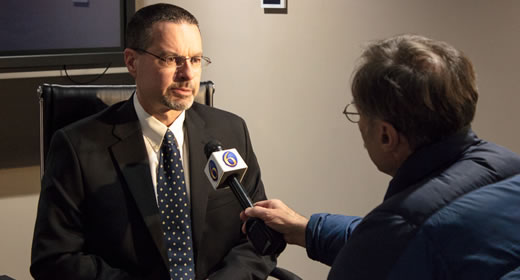
ANN ARBOR—Increasing numbers of Michigan’s local government leaders want citizens to play a more active role in local governance, according to a new survey from the University of Michigan.
Local leaders also reported that their citizens are less engaged with their city, township or county than they once were.
The data come from the Michigan Public Policy Survey, a biannual poll of Michigan's 1,856 local governments conducted by the Center for Local, State, and Urban Policy (CLOSUP) at the Gerald R. Ford School of Public Policy. The fall 2016 survey received a 71 percent response rate with results from 1,315 jurisdictions.
While 2017 has seen a significant increase in civic engagement at the national level—with more marches, demonstrations, and calls to Congress—this survey focused on forms of local engagement, like attending city council meetings, commenting on community issues, and reaching out to local government administrators to share information and ideas.
“We’re surprised to see this growing divide where local leaders want their citizens more deeply engaged in local governance, but say the opposite is happening—that citizens are less involved today than they were even just a few years ago,” said Tom Ivacko, CLOSUP program manager.
Nine in ten of Michigan’s local leaders reported that they believe citizens should play a role in local governance—providing input on issues (64 percent), recommending decisions (25 percent), and even making decisions (3 percent), particularly on the most controversial issues. Ninety-three percent said their jurisdiction provides citizen engagement opportunities, with more than half reporting that their jurisdiction offers “a great deal” of opportunities for citizens to engage.
At the same time, local leaders reported a drop in citizen engagement since the last time similar questions were asked. In 2012, 65 percent of local leaders reported that citizens were somewhat or very engaged in local governance. In the most recent survey, that number dropped to 56 percent. Responses were collected between Oct. 3 and Dec. 13, 2016.
The local leaders surveyed expressed concerns about declining citizen engagement. Among their critiques:
Citizens are only engaged on issues that affect them directly (86 percent).
Citizens are not willing to take the time to become well-informed on issues facing their jurisdiction (77 percent).
The citizens they hear from are more interested in complaining than in finding solutions (69 percent).
Lack of citizen engagement can, in some cases, make it difficult for local leaders to move forward on issues facing the community. For example, nearly three-quarters of Michigan’s local leaders reported that they struggle to find enough citizens to serve on appointed boards and commissions or in elected positions.
“And when it comes to the most controversial issues facing local communities—including whether to become a sanctuary city, whether to merge services with other jurisdictions, or whether to support or oppose fracking or industrial wind farms,” Ivacko said, “many local leaders have signaled a significant interest in hearing more from local residents.”
Read the full report: Michigan local leaders want their citizens to play a larger role in policymaking, but report declining engagement
Follow us on Twitter: @UMichiganNews
More news from the Ford School